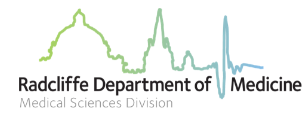This workshop aims to help individuals take steps towards a more effective working relationship with their manager/ supervisor and colleagues.

This workshop aims to help individuals take steps towards a more effective working relationship with their manager/ supervisor and colleagues.
About Us
We are a large, multi-disciplinary department, which aims to tackle some of the world’s biggest health challenges by integrating innovative basic biology with cutting edge clinical research.
We have internationally renowned programmes in a range of areas including cardiovascular sciences, diabetes and endocrinology, immunology, haematology and pathology.
Formed in 2012, we are a multi-disciplinary department with research interests that span the translational spectrum – from basic biology through to clinical application. Our ultimate aim is patient benefit, through improved understanding, diagnosis and treatment of disease.
The department is led by Prof Keith Channon: we are one of the largest departments in the University, with over 700 staff and an annual turnover of approximately £59m.
By bringing together a diverse range of approaches, we promote initiatives at the boundaries of current clinical and scientific disciplines, to create new research opportunities. Our research is strongly embedded in the Oxford University Hospital Trust, with our researchers leading five of the research themes in the NIHR Oxford Biomedical Research Centre.
This ensures a constant dialogue between basic and clinical research. Our work in underpinned by excellence in molecular medicine, stem cell biology, genomics and clinical laboratory science.
Within the department we unite four divisions and one research institute:
The Division of Cardiovascular Medicine (CVM) including the Cardiovascular Clinical Research Facility (CCRF) and the Oxford Centre for Clinical Magnetic Resonance Research (OCMR)
The Nuffield Division of Clinical Laboratory Sciences (NDCLS) including the MRC Molecular Haematology Unit (MHU)
The Investigative Medicine Division (IMD) including the MRC Translational Immune Discovery Unit (TIDU) and the Acute Multidisciplinary Imaging and Interventional Centre (AMIIC).
The Oxford Centre for Diabetes, Endocrinology and Metabolism (OCDEM) including the Diabetes Trials Unit (DTU)
The majority of research groups within the MRC Weatherall Institute of Molecular Medicine (WIMM), which is home to the MRC Molecular Haematology Unit and the MRC Translational Immune Discovery Unit.
In order to maintain flexibility and facilitate rapid research progress, we operate a devolved structure, with the above five units each having their own local leadership and strategy.
A small central administrative team, led by Jane Sherwood, Head of Administration and Finance for RDM, provides support and strategic oversight across the department.
As well as excellence in research, we strive for excellence in teaching – we deliver a significant part of the clinical student curriculum and have approximately 125 postgraduate research students.
We are passionate about supporting the career paths of all staff and students, to drive innovation and boost research capacity. We foster a positive culture that is inclusive and supportive of all staff and students, enabling them to reach their full potential.
We currently hold a Silver Athena Swan award in recognition of our efforts to introduce organisational and cultural practices that promote gender equality and create a better working environment for all.
© 2025 coursetakers.com All Rights Reserved. Terms and Conditions of use | Privacy Policy